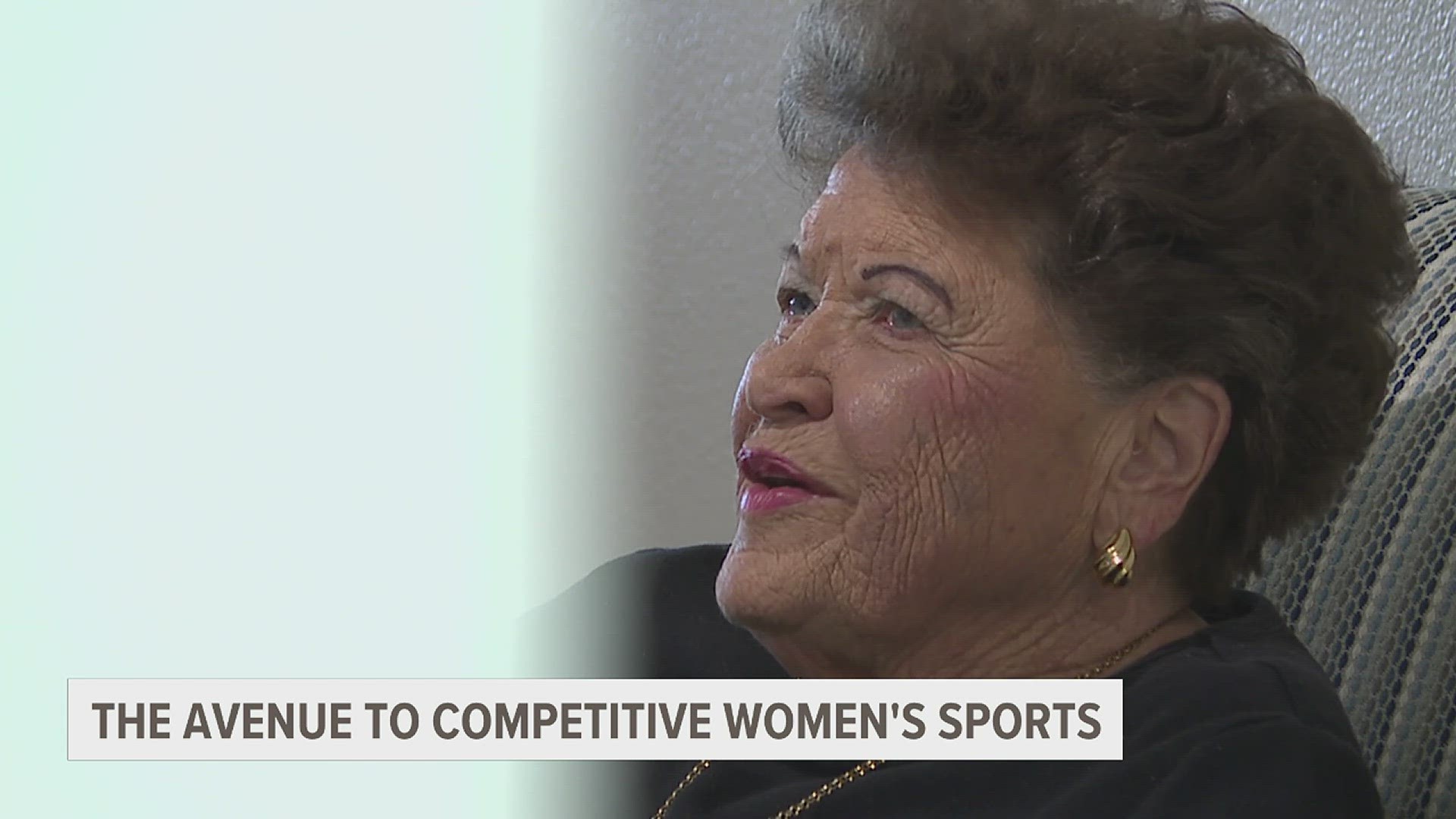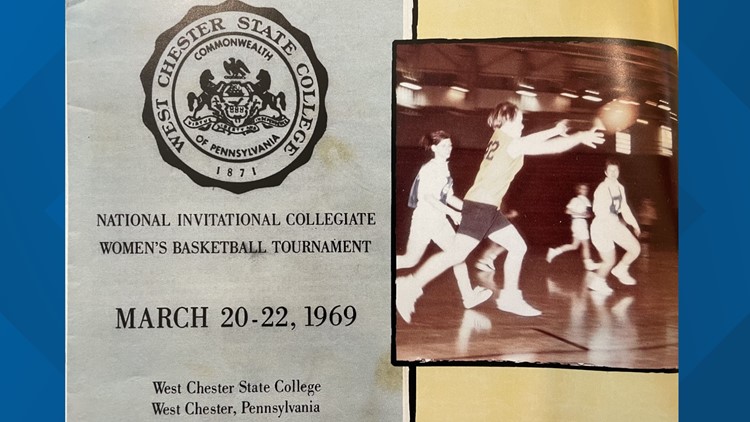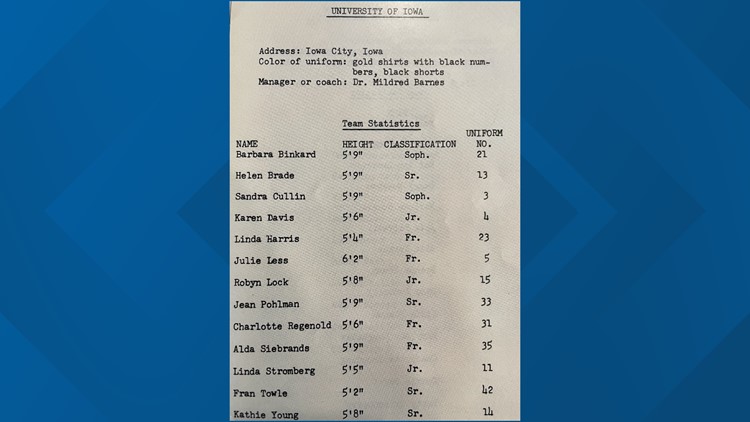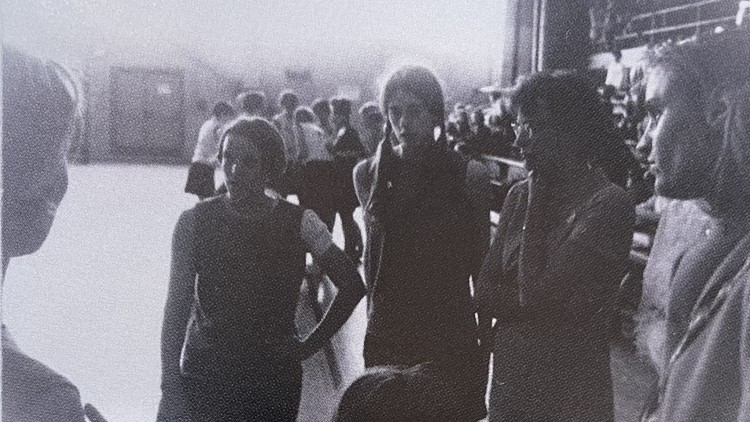DAVENPORT, Iowa — After selling out both first and second-round March Madness games, Caitlin Clark and the Iowa Hawkeyes continue to break records. The team's victory over West Virginia in the second round averaged 4.90 million viewers on ESPN, according to Nielsen, making it the most-viewed women's tournament game ever, excluding Final Four and title games. It surpassed the record-setting 3.23 million who watched the team's first-round win.
It's all a very different story compared to what women's sports were 55 years ago.
"When I was at Iowa, way back in the 1960s, '68, we were lucky to have 30 people in the audience," Helen Smiley said. "We were thrilled to have 25 or 30 people."
In 1968, Smiley started as a PhD candidate at the University of Iowa. She also had a full-time job teaching in the physical education department.
"I also would have other assignments," she said. "Well, it just so happened that my other assignment was, they asked, 'Would you please begin to form a women's athletics program for us?' So that's how I got the job of actually developing the program and starting it from the very beginnings."
At the time, she said, University of Iowa women were playing some sports recreationally. Her official title was the Director of Recreational Sports and Competitive Sports.
"That's what they had," Smiley said. "They didn't call me the athletic director."
The women's athletic director title would eventually go to Dr. Christine Grant in 1973 when the university elevated 12 women's club sports to varsity status.
"The sports were very different. The philosophy for girls was very different back then," Smiley said. "The rules of the games were very limiting in terms of the young girls because they didn't believe that women's bodies were designed to compete."
Smiley recalls being in charge of seven sports, including basketball. Her total budget was less than $800. She remembers giving the girls $1 a day when they traveled and it would pay for a hamburger, french fries and a coke.
"I was not paid extra for this. It's just something that they wanted me to do. And the coaches were just given the coaching assignment as part of their teaching contract, so nobody was paid extra," she said. "At night, we would take the uniforms home and launder them and bring them back clean the next day for whoever had a game. Maybe volleyball had a game that day and basketball had a game yesterday and so they all wore the same uniforms. That's all we had."
In March 1969, the Iowa women's basketball team traveled to Pennsylvania to play in the National Invitational Collegiate Women's Basketball Tournament. They ended in fourth, losing to Iowa Wesleyan in the consolation game.
1969 National Invitational Collegiate Women's Basketball Tournament
"That was the first time they had a national tournament for college women," Smiley said. "It was the old basketball rules. You know, where the guards were on one end and forwards were on the other end."
Smiley remembers one of the early challenges was finding coaches.
"There was a lot of duties to do to organize schedules and arrange for transportation from my standpoint, just to direct the program, but the biggest challenge all along is that we were trying to make things, keep things as interesting as we can and really foster the interests of the young ladies," she said.
She never imagined the magnitude Iowa women's basketball would become today.
"When you're a teacher and when you're working that hard for something, all you want to do is make progress," Smiley said. "There's absolutely no avenues for sport at the time. And you know, you hope that someday it would be better, but you just can't dream ahead."
"It thrills me to death, just to know that they have these little girls out in the stands that are waving their signs and want autographs and want to wear Caitlin shirts. That's so exciting for me because we didn't have anything," Smiley said. "We battled and battled. You know those 10 years between 1972 and '82 are the years when all the change took place. And now luckily, we have scholarships, we have professional sports. Women have everything. It's wonderful."
Smiley left Iowa in 1971 and went on to teach and work in the athletics department at the University of North Dakota. In 1985, she became the Women's Athletic Director at Western Illinois University, ultimately being named the Director of Athletics of the total 22-sport program. She retired from WIU in 2001.









